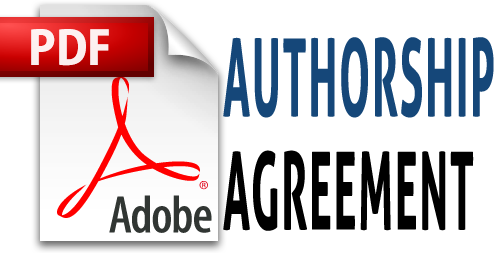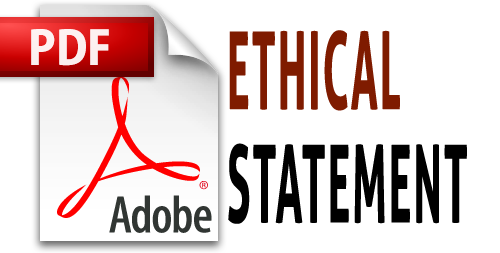FLIPPED LEARNING BERBASIS PROJECT TERHADAP BERPIKIR KREATIF DAN PRESTASI BELAJAR DI PENDIDIKAN TINGGI
 Anak Agung Gde Ekayana(1*)
Anak Agung Gde Ekayana(1*)
(1) Institut Bisnis dan Teknologi Indonesia, Denpasar, Bali
(*) Corresponding Author
 Abstract viewed : 2901
|
Abstract viewed : 2901
|  PDF downloaded : 606
PDF downloaded : 606
Abstract
Practical learning carried out online during the pandemic must provide a way out for students to improve the quality of learning competencies. The purpose of this research is to describe the effect of Project-based Flipped Learning (PjBFL) on the variables of creative thinking ability and learning achievement in practical learning in higher education. The research design was quasi-experimental, using a pretest-posttest non-equivalent control group design. The population in the study used three classes (150 students) of the computer systems study program. The research sample was selected by group random sampling. Research data were analyzed using MANCOVA. The research results show that there is a difference between the ability to think creatively and the learning achievement of students who are taught using the PjBFL model compared to students who are taught using the DFL. The results of the PjBFL model on creative thinking ability (M = 79.36) were significantly higher than the DFL model (M = 64.74), and the learning achievement of the PjBFL model (M = 83.00) was significantly higher than the DFL model ( M=63.78). Practical learning with the PjBFL model is superior to the DFL model on higher education student achievement and creative thinking skills.
Abstrak
Pembelajaran praktikum yang dilakukan secara daring selama masa pandemi harus mampu memberikan jalan keluar bagi peserta didik untuk meningkatkan kualitas kompetensi belajar. Tujuan penelitian untuk mendeskripsikan pengaruh Flipped Learning berbasis Project (PjBFL) terhadap variabel kemampuan berpikir kreatif dan prestasi belajar dalam pembelajaran praktikum di pendidikan tinggi. Rancangan penelitian adalah quasi eksperiment dengan desain menggunakan pretest-posttest non-equivalent control group design. Populasi dalam penelitian menggunakan tiga kelas (150 peserta didik) program studi sistem komputer. Sampel penelitian dipilih secara group random sampling. Data penelitian dianalisa menggunakan MANCOVA. Hasil dari penelitian yang telah dilakukan bahwa terdapat perbedaan antara kemampuan berpikir kreatif dan prestasi belajar peserta didik yang dibelajarkan dengan model PjBFL dibandingkan peserta didik yang belajar dengan DFL. Hasil model PjBFL pada kemampuan berpikir kreatif mendapatkan (M=79,36) secara signifikan lebih tinggi dibandingkan dengan model DFL (M=64,74) dan prestasi belajar model PjBFL (M=83,00) secara signifikan lebih tinggi dibandingkan model DFL (M=63,78). Pembelajaran praktikum dengan model PjBFL lebih unggul dibandingkan model DFL terhadap prestasi belajar siswa dan kemampuan berpikir kreatif di pendidikan tinggi.
Keywords
References
Aisyah, M. N., Fitriyah, L. M., & Indraswari, N. F. (2020). Pengaruh Model Project Based Learning dengan Alat Peraga Bokstik Terhadap Prestasi Belajar Matematika Siswa. Jurnal of Songke Math, 3(1), 1–7.
Almulla, M. A. (2020). The Effectiveness of the Project-Based Learning (PBL) Approach as a Way to Engage Students in Learning. SAGE Open, 10(3), 1–15. https://doi.org/10.1177/2158244020938702
Ariyati, P., Sukrawarpala, I. W., & Santyasa, I. W. (2021). Problem Based E-Learning dalam Pembelajaran Kimia Di SMA. In Kwangsan: Jurnal Teknologi Pendidikan (Vol. 9, Issue 1, p. 70). https://doi.org/10.31800/jtp.kw.v9n1.p70--89
Berebein, D. K., Sukarjita, I. W., & Lantik, V. (2021). Model Pembelajaran Kumon untuk Meningkatkan Prestasi Belajar Siswa. Magnetic: Research Journal Of Physics and It’s Application, 1(2), 81–86.
Broadbent, J., & Lodge, J. (2021). Use of live chat in higher education to support self-regulated help seeking behaviours: a comparison of online and blended learner perspectives. International Journal of Educational Technology in Higher Education, 18(1), 1–20. https://doi.org/10.1186/s41239-021-00253-2
Candiasa, I. M. (2020). Analisis Data Dengan Statistik Multivariat. Undiksha Press.
Chiang, F. K., & Wu, Z. (2021). Flipping a classroom with a three-stage collaborative instructional model (3-CI) for graduate students. Australasian Journal of Educational Technology, 37(4), 51–67. https://doi.org/10.14742/ajet.6330
Darmayoga, I. W., & Suparya, I. K. (2021). Penerapan Model Pembelajaran Project Based Learning ( PjBL ) Berbantuan Media Visual untuk Meningkatkan Hasil Belajar IPS Siswa Kelas V SD N 1 Penatih Tahun Pelajaran 2019 / 2020. Jurnal Pendidikan Dasar, 2(1), 41–50.
Ekayana, A. A. G., Muku, I. D. M. K., & Hartawan, I. N. B. (2021). Implementasi Model Pembelajaran Flipped Classroom Pada Mata Kuliah Sensor Tranduser Dalam Pembelajaran Daring. Jurnal Teknologi Pembelajaran Indonesia, 11(2), 106–119. https://doi.org/10.23887/jurnal_tp.v11i2.636
Ferrero, M., Vadillo, M. A., & León, S. P. (2021). Is project-based learning effective among kindergarten and elementary students? A systematic review. PLoS ONE, 16(4 April). https://doi.org/10.1371/journal.pone.0249627
Forthmann, B., Jendryczko, D., Scharfen, J., Kleinkorres, R., Benedek, M., & Holling, H. (2019). Creative ideation, broad retrieval ability, and processing speed: A confirmatory study of nested cognitive abilities. Intelligence, 75(June 2018), 59–72. https://doi.org/10.1016/j.intell.2019.04.006
Gie, T. (2003). Teknik-teknik Berpikir Kreatif. Yogyakarta: Multi Pressindo.
Gu, X., Dijksterhuis, A., & Ritter, S. M. (2019). Fostering children’s creative thinking skills with the 5-I training program. Thinking Skills and Creativity, 32(October 2018), 92–101. https://doi.org/10.1016/j.tsc.2019.05.002
Guo, P., Saab, N., Post, L. S., & Admiraal, W. (2020). A review of project-based learning in higher education: Student outcomes and measures. International Journal of Educational Research, 102(May), 101586. https://doi.org/10.1016/j.ijer.2020.101586
Hanik, N. R., & Wiharti, T. (2021). Tanggapan dan Kendala Mahasiswa dalam Pembelajaran Daring serta Harapannya pada Pembelajaran dan Praktikum Selama Pandemi COVID 19. Jurnal Ilmiah Profesi Pendidikan, 6(4), 609–616.
Hasri. (2021). Meningkatkan Prestasi Belajar Siswa Melalui Pendekatan Project Based Learning pada Mata Pelajaran Matematika. Didaktika: Jurnal Kependidikan, 10(1), 45–52.
Hew, K. F., Bai, S., Huang, W., Dawson, P., Du, J., Huang, G., Jia, C., & Thankrit, K. (2021). On the use of flipped classroom across various disciplines: Insights from a second-order meta-analysis. Australasian Journal of Educational Technology, 37(2), 132–151. https://doi.org/10.14742/AJET.6475
Hew, K. F., Jia, C., Gonda, D. E., & Bai, S. (2020). Transitioning to the “new normal” of learning in unpredictable times: pedagogical practices and learning performance in fully online flipped classrooms. International Journal of Educational Technology in Higher Education, 17(1). https://doi.org/10.1186/s41239-020-00234-x
Hudiananingsih, D., Sitawati, R., Widanta, M. R. J., Ardika, D., Gede, S., & Sadiyani, W. (2019). Effectiveness of Project-Based Learning (PjBL). 2nd International Conference on Applied Science and Technology 2019 - Social Sciences Track (ICASTSS 2019), 354(iCASTSS), 378–382. https://doi.org/10.2991/icastss-19.2019.80
Komalasari, M. D., & Apriani, A.-N. (2021). Model Flipped Classroom Berbasis Living Values Education Program Sebagai Penguatan Pendidikan Karakter Peserta Didik Sekolah Dasar. 8.
Madyani, I., Yamtinah, S., Utomo, S. B., Saputro, S., & Mahardiani, L. (2020). Profile of Students’ Creative Thinking Skills in Science Learning. 3rd International Conference on Learning Innovation and Quality Education, 397(Icliqe 2019), 957–964. https://doi.org/10.2991/assehr.k.200129.119
Marina, H., & Ridlo, S. (2021). The Effectiveness of Flipped Classroom to Improve Students ’ Understanding and Self Efficacy during the Covid-19 Pandemic Concept. 10(1), 70–76.
Munandar, U. (2009). Mengembangkan bakat dan kreativitas anak sekolah. Penuntun bagi guru dan Orang Tua. Grasindo.
Noviana, E., Rianda, P. N., Zulkhilmi, M. H., Nadia, N. S., Hykmah, U., Bintan, T. A., & W, I. V. N. (2021). Keefektifan Model Pembelajaran Daring dengan Menggunakan Laboratorium Maya sebagai Solusi Praktikum Pembelajaran Sains pada Siswa SMA di Masa Pandemi Covid-19. Jurnal Implementasi, 1(2), 139–145. http://jurnalilmiah.org/journal/index.php/ji/article/view/64
Nugroho, A. (2021). Efektifitas Laboratorium Virtual Dalam Pembelajaran Praktikum Analisis Farmasi Pada Mahasiswa Farmasi Saat Pandemic Covid-19. Refleksi Pembelajaran Inovatif, 3(1), 317–324. https://doi.org/10.20885/rpi.vol3.iss1.art1
Ozudogru, M., & Aksu, M. (2020). Pre-service teachers’ achievement and perceptions of the classroom environment in flipped learning and traditional instruction classes. Australasian Journal of Educational Technology, 36(4), 27–43.
Piaget, J. (1971). Psychology and Epistemology. The Viking Press.
Prasetyawati, V. (2021). Metode Cooperative Learning dalam Meningkatkan Kualitas Hasil Belajar Siswa pada Masa Pandemi Covid-19. Epistema, 2(2), 90–99. https://doi.org/10.21831/ep.v2i2.41275
Pratiwi, N. W. E., & Santyasa, I. W. (2021). Project-Based with Flipped Learning : A Challenge to Enhance Students ’ Achievement on Chemistry. Advances in Social Science, Education and Humanities Research, 566(Aes 2020), 186–190.
Rahmania, I. (2021). Project Based Learning (PjBL) Learning Model with STEM Approach in Natural Science Learning for the 21st Century. Budapest International Research and Critics Institute (BIRCI-Journal): Humanities and Social Sciences, 4(1), 1161–1167. https://doi.org/10.33258/birci.v4i1.1727
Randazzo, M., Priefer, R., & Khamis-Dakwar, R. (2021). Project-Based Learning and Traditional Online Teaching of Research Methods During COVID-19: An Investigation of Research Self-Efficacy and Student Satisfaction. Frontiers in Education, 6(May), 1–16. https://doi.org/10.3389/feduc.2021.662850
Santyasa, I. W., Agustini, K., & Pratiwi, N. W. E. (2021). Project Based E-learning and Academic Procrastination of Students in Learning Chemistry. International Journal of Instruction, 14(3), 909–928. https://doi.org/10.29333/iji.2021.14353a
Santyasa, I. W., Santyadiputra, G. S., & Juniantari, M. (2019). Problem-based learning model versus direct instruction in achieving critical thinking ability viewed from students’ social attitude in learning physics. Advances in Social Science, Education and Humanities Research, 335(ICESSHum), 633–644. https://doi.org/10.2991/icesshum-19.2019.101
Saraswati, N. L. P. A., & Mertayasa, I. N. E. (2020). Pembelajaran Praktikum Kimia pada Masa Pandemi COVID-19 : Qualitative Content Analysis Kecenderungan Pemanfaatan Teknologi Daring. Wahana Matematika Dan Sains: Jurnal Matematika, Sains, Dan Pembelajaran., 14(2), 144–161.
Simanjuntak, M. P., Hutahaean, J., Marpaung, N., & Ramadhani, D. (2021). Effectiveness of problem-based learning combined with computer simulation on students’ problem-solving and creative thinking skills. International Journal of Instruction, 14(3), 519–534. https://doi.org/10.29333/iji.2021.14330a
Spector, J. M. (2014). Conceptualizing the emerging field of smart learning environments. Smart Learning Environments, 1(1), 1–10. https://doi.org/10.1186/s40561-014-0002-7
Sprenger, D. A., & Schwaninger, A. (2021). Technology acceptance of four digital learning technologies (classroom response system, classroom chat, e-lectures, and mobile virtual reality) after three months’ usage. International Journal of Educational Technology in Higher Education, 18(1). https://doi.org/10.1186/s41239-021-00243-4
Sternberg, R. J. (2020). What’s Wrong with Creativity Testing? Journal of Creative Behavior, 54(1), 20–36. https://doi.org/10.1002/jocb.237
Suparno, P. (1997). Filsafat Konstruktivisme dalam Pendidikan. Yogyakarta: Kanisius.
Sutrisna, G. B. B., Sujana, I. W., & Ganing, N. N. (2020). Pengaruh Model Project Based Learning Berlandaskan Tri Hita Karana Terhadap Kompetensi Pengetahuan Ips. Jurnal Adat Dan Budaya Indonesia, 1(2), 84–93. https://doi.org/10.23887/jabi.v2i2.28898
Tang, T., Abuhmaid, A. M., Olaimat, M., Oudat, D. M., Aldhaeebi, M., & Bamanger, E. (2020). Efficiency of flipped classroom with online-based teaching under COVID-19. Interactive Learning Environments, 0(0), 1–12. https://doi.org/10.1080/10494820.2020.1817761
Teng, Y., & Wang, X. (2021). The effect of two educational technology tools on student engagement in Chinese EFL courses. International Journal of Educational Technology in Higher Education, 18(1). https://doi.org/10.1186/s41239-021-00263-0
Tunggadewi, D. A. (2021). Efektifitas Proses Pembelajaran Daring Mahasiswa Fakultas Teknik dan Sains Universitas Nasional Jakarta Selama Pandemi Covid-19. Jurnal Literasi Digital, 1(1), 56–63.
Yen, T.-F. (2020). The Performance of Online Teaching for Flipped Classroom Based on COVID-19 Aspect. Asian Journal of Education and Social Studies, 8(3), 57–64. https://doi.org/10.9734/AJESS/2020/v8i330229
Yildiz, C., & Guler Yildiz, T. (2021). Exploring the relationship between creative thinking and scientific process skills of preschool children. Thinking Skills and Creativity, 39(January), 100795. https://doi.org/10.1016/j.tsc.2021.100795
Yurniwati, Y., & Utomo, E. (2020). Problem-based learning flipped classroom design for developing higher-order thinking skills during the COVID-19 pandemic in geometry domain. Journal of Physics: Conference Series, 1663(1). https://doi.org/10.1088/1742-6596/1663/1/012057
Zaiyar, M., & Rusmar, I. (2020). Students’ Creative Thinking Skill in Solving Higher Order Thinking Skills (HOTS) Problems. Al-Jabar : Jurnal Pendidikan Matematika, 11(1), 111–120. https://doi.org/10.24042/ajpm.v11i1.5935
Zhou, Q. (2021). Development of creative thinking skills through aesthetic creativity in middle school educational music course. Thinking Skills and Creativity, 40(February), 100825. https://doi.org/10.1016/j.tsc.2021.100825
Zhuang, K., Yang, W., Li, Y., Zhang, J., Chen, Q., Meng, J., Wei, D., Sun, J., He, L., Mao, Y., Wang, X., Vatansever, D., & Qiu, J. (2021). Connectome-based evidence for creative thinking as an emergent property of ordinary cognitive
Refbacks
- There are currently no refbacks.
Copyright (c) 2022 Anak Agung Gde Ekayana

This work is licensed under a Creative Commons Attribution-NonCommercial 4.0 International License.
Kwangsan Indexed By
Kwangsan: Jurnal Teknologi Pendidikan diterbitkan oleh Balai Besar Guru Penggerak (BBGP) Prov. Jawa Timur.
Kementerian Pendidikan dan Kebudayaan
Alamat Redaksi:
Jl. Mangkurejo, Ds. Kwangsan, Sedati - Sidoarjo.
Telp 0318911373 Fax. 0318911392
Email: jurnal.kwangsan@kemdikbud.go.id & jurnalkwangsan@dikbud.belajar.id






























